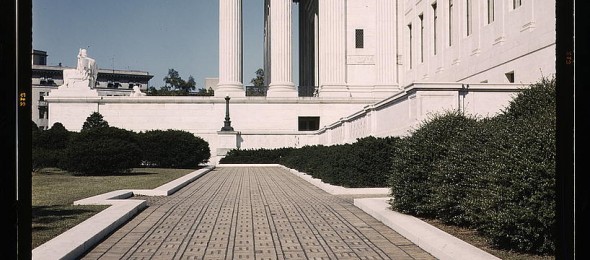Professor Linda S. Mullenix, Morris & Rita Atlas Chair in Advocacy at the University of Texas School of Law, has authored Gaming the System: Protecting Consumers from Unconscionable Contractual Forum Selection and Arbitration Clauses, Forthcoming 66 Hasting L.J. ___ (symposium issue #3, 2015)(draft paper); U of Texas Law, Public Law Research Paper No. 568. In her research paper, Professor Mullenix discusses the impact of the United States Supreme Court’s 2013 decision in Atlantic Marine.
Here is the abstract:
The Supreme Court’s 2013 decision in Atlantic Marine v. U.S. Dist. Ct. perhaps usefully resolved the issue of the appropriate procedural means for ascertaining the proper court where the parties’ agreement includes a forum selection clause. However, the Court’s decision was predicated on the presupposition that the forum selection clause was valid – a presupposition that begged that threshold question. Thus, the Court’s presupposition threw a significant set of antecedent questions into legal limbo, namely: (1) what body of law applies to evaluate the validity and enforceability of a forum selection clause, (2) what court should make that determination, and (3) when should that determination be made? This article explores the problem of forum selection, choice-of-law, and arbitration clauses in the context of the federal courts’ longstanding fixation on the problem of creative forum-shopping and other gamesmanship to gain litigation advantage, which strategies the courts have long eschewed. Nonetheless, despite the concerted efforts of courts and legislators to thwart such techniques through judicial fiat and legislative enactment, actors in the judicial arena continue to invent resourceful methods to circumvent new constraints. This article argues that consumer forum selection and arbitration clauses ought to be viewed through the lens of litigation gamesmanship, as procedural means whereby corporate defendants are able to establish forum advantage without any countervailing benefit to consumers who unwittingly agree to such clauses. The Court consistently has turned a blind eye and deaf ear on the problem of consumer forum selection and arbitration clauses, instead merging consideration of consumer agreements with jurisprudence developed in the dissimilar context of sophisticated business partners freely negotiating at arms-length. The Court’s continued failure to distinguish and address the problem of consumer forum selection and arbitration clauses ? left unchanged or worsened by Atlantic Marine ? calls for legislative action to close this legal advantage conferred on corporate defendants who exploit it to their economic benefit.
This and other papers written by Professor Mullenix may be downloaded without charge from the Social Science Research Network.
Photo credit: The Library of Congress / Foter / No known copyright restrictions.














